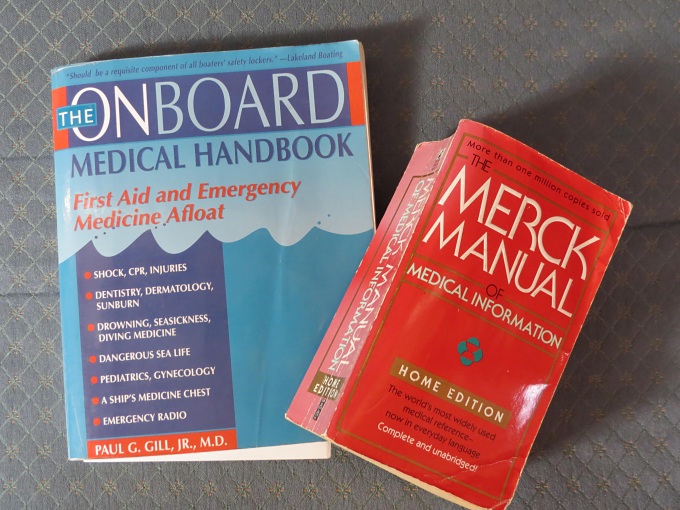FAQ - Do you get seasick? If so, what do you do about it?
/Call it what you will … mal de mer, mareado, seasickness, it's very real and it's a problem for many sailors. We've heard from many folks who say “I'd love to do what you're doing, but I get seasick.” Well, join the club … after 13 years aboard, so do we... still! A recent passage from Portland to Adelaide confirmed that we haven't “outgrown” it. It certainly doesn't prevent us from sailing, but we do what we can to minimize the problem.
We've read that there are three states of seasickness:
1. You're afraid you'll get sick
2. You're afraid you're going to die
3. You're afraid you won't die
I get a kick out of people who don't ever get seasick and who assume that people who do have a choice in the matter. If you will it to go away, it will. Trust me, it doesn't. I'd certainly prefer not to deal with it, but as determined as I am about not getting sick, it still happens sometimes.
Early on, we thought we'd just grin and bear it. After one particularly bad trip, however, when we not only thought we'd die, but we were hoping we'd die, we decided that perhaps we should investigate and come up with some relief. We started with crystallized ginger. I loved it, but it really didn't do anything to calm my queasy stomach and subsequent heaving. David hated it and now associates all ginger products with seasickness.
We've tried wrist bands and patches which don't seem to have much of an effect at all on us. We've tried over-the-counter pharmaceuticals, but they leave us very drowsy (even the non-drowsy formula) and still sick. So far, the best we've come up with is Stugeron (generic: cinnarizine) which is a prescription drug. Last we checked, it was not available in the USA or Canada. It's an anti-histamine, anti-vertigo drug which is used regularly in the treatment of nausea. We were able to purchase it in the Caribbean and in South America and South Africa without a prescription and a friend has supplied us ever since. We take a small dosage (15-20mg) the night before we leave on a passage and then twice a day after that until we feel the seasickness has passed. It works. There is some drowsiness, but definitely not enough to impair our ability to stand watch or do whatever is necessary to handle the boat. The best thing about it is that we can take it even after we're seasick (assuming we can hold it down) and it starts taking effect rather quickly.
In our particular cases, we usually recover from the symptoms in 1-2 days and once we have our sea legs, we're fine. With the experience of knowing that we'll get better eventually, it's easier to handle the seasickness at the time. I'd hate to think of what I would have missed in our years aboard Nine of Cups, if I'd let seasickness get the better of me.
All this said, different drugs work differently on different people. We are not taking any other meds at all. There may be contraindications taking Stugeron with other medications or in certain medical conditions, e.g. pregnancy. Definitely read up and consult a physician if you have any questions.
What are your experiences with seasickness? What works for you? Share!
| Days and Ways to Celebrate |
| A daily list of mostly obscure holidays and fun ways to celebrate them. |
| Cheese Doodle Day |
| Really? I hate these things, but you gotta do what you gotta do. Yuck. Better yet, watch this video on how they're made. |





 . Merck's is a good overall guide to symptoms and potential diseases/medical issues although after looking up “rash”, we usually come away thinking we have an obscure, incurable disease.
. Merck's is a good overall guide to symptoms and potential diseases/medical issues although after looking up “rash”, we usually come away thinking we have an obscure, incurable disease.  is a practical approach to common and some uncommon problems and how to handle them. Everything from emergency dentistry to dermatology to jellyfish stings to yeast infections is covered and it also provides a good list of what to include in an on-board medical kit.
is a practical approach to common and some uncommon problems and how to handle them. Everything from emergency dentistry to dermatology to jellyfish stings to yeast infections is covered and it also provides a good list of what to include in an on-board medical kit.